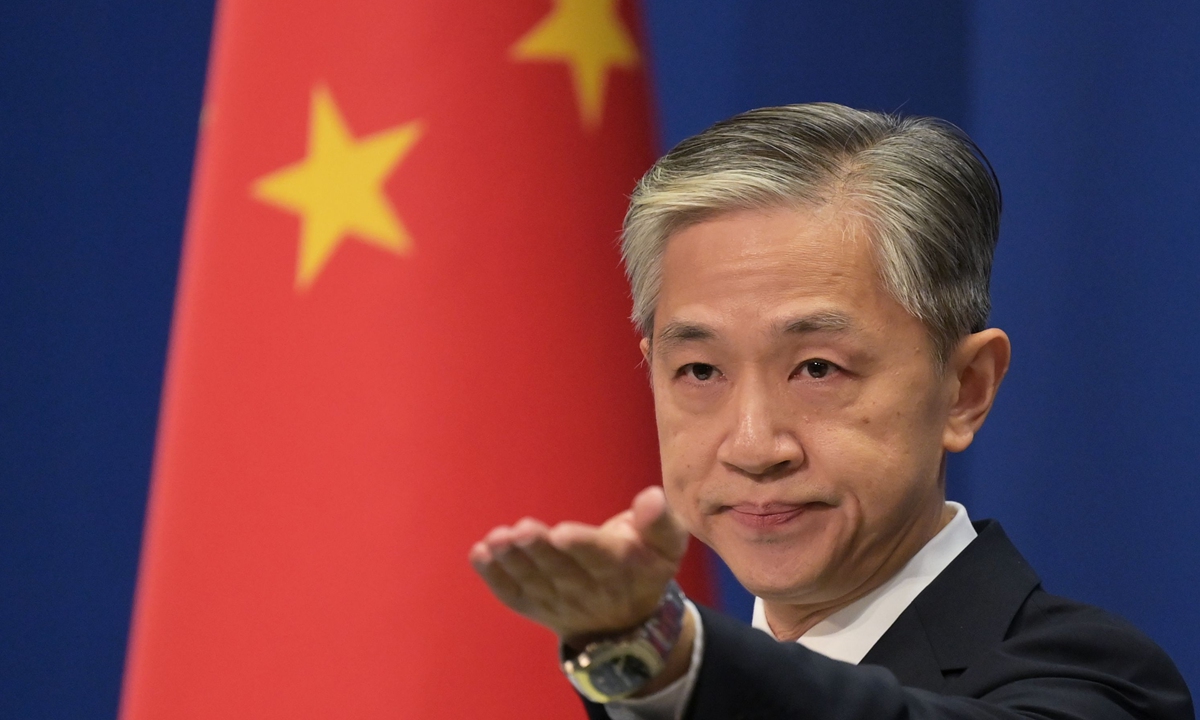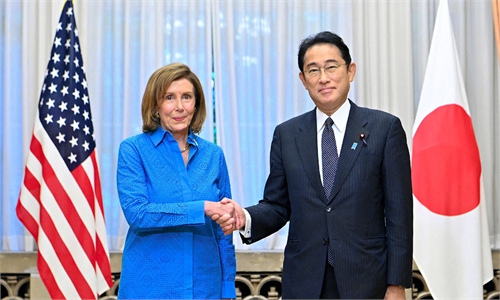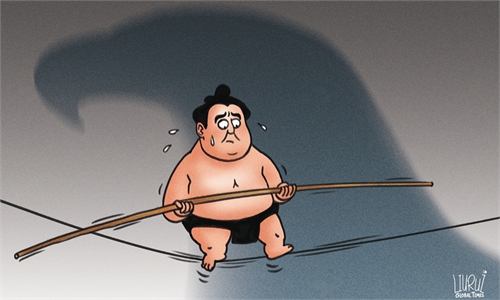
Chinese Foreign Ministry Spokesperson Wang Wenbin Photo: VCG
Japan has no qualification or the right to point fingers over the Taiwan question, said Chinese Foreign Ministry on Monday, refuting Japanese government's remarks that smeared China's military drills around Taiwan island as a "threat to regional peace and security."
"Japan has been acting so high-profile on the Taiwan question. Has it forgotten the commitment it made when signing the Sino-Japanese Joint Statement? Is it trying to subvert the political foundation of China-Japan relations? Does it have the ambition to touch Taiwan again? Is Japan going to take this opportunity to expand its arms, abandon its pacifist constitution and abandon the path of peaceful development?" Wang Wenbin, spokesperson of the Ministry of Foreign Affairs, said at a press conference on Monday.
Wang's remarks came after the Japanese government claimed that the ballistic missiles fired by the Chinese military fell into Japan's exclusive economic zone (EEZ) on Thursday. Similar questions have been raised several times at the Chinese Foreign Ministry's press conferences since the last week.
After a meeting with Pelosi during her visit to Japan, Japanese Prime Minister Fumio Kishida said China's military drills are a "serious problem that impacts our national security and the safety of our citizens" and a threat to regional peace and security, according to media reports.
Wang refuted the claims, saying that China and Japan have not carried out maritime delimitation in relevant waters, so there is no such thing as "Japan's EEZ" in the area.
China is conducting military exercises and training in the waters surrounding Taiwan island, which is China's territory, in an open, transparent and professional manner, and in accordance with domestic law, international law and international practice. "It is not only a warning to the provocateurs, but also a legitimate move to safeguard national sovereignty and territorial integrity," he said.
"We firmly oppose Japan's erroneous remarks and unreasonable accusations. Japan has neither the qualification nor the right to make irresponsible remarks on the Taiwan question from either the legal, political or moral level," said Wang.
China urges the Japanese side to seriously reflect on its history of aggression, recognize the high sensitivity of the Taiwan question, and stop following and working with US' wrong actions of using Taiwan to contain China, so as to avoid further harm to bilateral relations, he said.
On Wednesday, Japan with other Group of Seven members and the European Union issued a statement that criticized China over the Taiwan question. The next day, talks between the Chinese and Japanese foreign ministers, which were reportedly scheduled for Thursday afternoon on the sidelines of ASEAN events in Phnom Penh, were cancelled.
On Friday, Japanese Foreign Minister Yoshimasa Hayashi, along with US Secretary of State Antony Blinken and Australian Foreign Minister Penny Wong issued a joint statement after a meeting in Phnom Penh, accusing China of "gravely affecting international peace and stability."
The statement said the three countries have no change in the respective "one China policies, where applicable."
With respect to the additional words added to the "one China policy" in the statements, Wang said at Monday's press conference that it is illegal and invalid for certain countries to add various prefixes and suffixes to the one-China principle, and such actions are an attempt to distort, obscure and empty the one-China principle.
"The meaning of the one-China principle is clear and unambiguous. That is, there is but one China in the world and Taiwan is a part of China," he said, urging certain countries to abide by the solemn commitments they made, and understand the danger and harm of supporting "Taiwan independence" forces.



